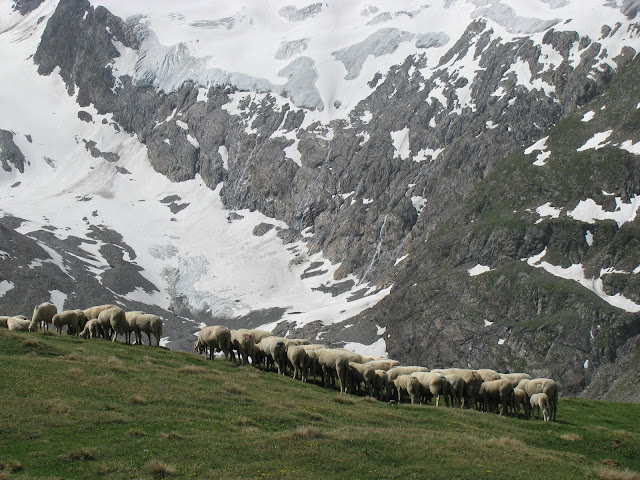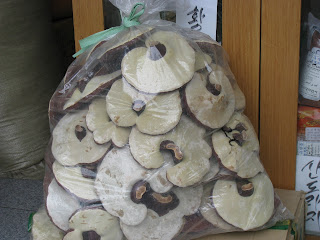"They do not bear arms, and do not know them, for I showed them a sword, they took it by the edge and cut themselves out of ignorance. They have no iron. Their spears are made of cane..."
What have we done? To ourselves? To each other? To our planet?
I'm actually leaving out the rest of that quote. It is:
"They would make fine servants... With fifty men we could subjugate them all and make them do whatever we want."
This is an example of what civilizations have done worldwide since before the time of Ur, Uruk, and the Sumerians of Southern Mesopotamia. Take one look at these origins of what is now Iraq and you will see a peaceful marsh-dwelling people, full of respect for nature, dominated repeatedly by surrounding nomadic peoples for their prime fertile landscape. This 53 minute video link is a cool (though old) English documentary about the origins of this "cradle of civilization". There are several more in the series and they review other global cradles such as India, China, Egypt, and the Mayan civilization. I'm not sure how I feel about how it holds "The West" responsible for the total victory of liberal democracy or the end of civilization, but it's worth watching.
http://www.youtube.com/watch?v=NXohegE-lBY
Civilization meant a process of forming organized groups of people and living in these societies, working together. Theoretically, somewhere along the way, our success at having a stick turned into envy for a bigger, better, cooler-looking stick. This caused all sorts of problems. Later, we came to rank civilizations according to writing, progress in agriculture, transportation, trade, culture, knowledge, legal systems, metallurgy, astronomy, and more. How about peace?
"They would make fine servants... With fifty men we could subjugate them all and make them do whatever we want."
This is an example of what civilizations have done worldwide since before the time of Ur, Uruk, and the Sumerians of Southern Mesopotamia. Take one look at these origins of what is now Iraq and you will see a peaceful marsh-dwelling people, full of respect for nature, dominated repeatedly by surrounding nomadic peoples for their prime fertile landscape. This 53 minute video link is a cool (though old) English documentary about the origins of this "cradle of civilization". There are several more in the series and they review other global cradles such as India, China, Egypt, and the Mayan civilization. I'm not sure how I feel about how it holds "The West" responsible for the total victory of liberal democracy or the end of civilization, but it's worth watching.
http://www.youtube.com/watch?v=NXohegE-lBY
Civilization meant a process of forming organized groups of people and living in these societies, working together. Theoretically, somewhere along the way, our success at having a stick turned into envy for a bigger, better, cooler-looking stick. This caused all sorts of problems. Later, we came to rank civilizations according to writing, progress in agriculture, transportation, trade, culture, knowledge, legal systems, metallurgy, astronomy, and more. How about peace?
The amazing choral piece below is called Raua Needmine (Curse Upon Iron) by the Estonian composer Veljo Tormis (one of the greatest Estonian composers). It takes text about the mythological birth of iron from the great Finnish epic, the Kalevala, and combines it with modern text. The Kalevipoeg is similar and considered to be the great Estonian epic. I first learned of this piece as a member of the University of South Carolina's Concert Choir, under the direction of Dr. Larry Wyatt. My experience with this piece is actually one of the reasons why I am in choral music today, though it's not one of my favorite pieces. As it happened, we were singing it and thought the text was in Finnish. We didn't have the translation yet so I went to the professor on campus who taught Finnish and asked him about it. I learned it was not Finnish, but Estonian and contained text from the great Finn and Estonian epics. My eyes widened. I looked up the Kalevala and with it and the professor, found the text from which this piece came. Casually, I mentioned this later when discussing choir and ended up proudly speaking about the text and the piece at the concert. As an undergraduate, having your professor say wonderful things about your initiative and sing your praises was awesome, plus......I learned a few things and felt smart! :-)
Anyway, back to the piece itself. It's rather scary......lots of curses and shouts and a single pounding drum that is ever-present. I believe that all of humanity's barbarian actions resulting in war since the beginning of civilization on our planet are fearful. Why curse iron? Did they curse rocks before that? How did tools and knowledge end up as weapons? The writer of the Kalevala text from so long ago was 'spot on' when he recognized that there should be an incantation to preserve the good nature of the creation of iron......although....if it weren't iron, it would be something else. Is the constancy of the drum's return a warning that we, as humanity, cannot escape our need to own, to defeat, to act and even create in aggression?
Without regarding religious texts, who was the first aggressor? Nature or nurture? There is argument on either side of that coin.
Are we surviving our own technological age?
I have no answer, but this Memorial Day, I encourage myself to examine this, to remember the fallen in mankind's past from time immemorial, and to bear in mind those who have yet to lose their lives....and certainly will, while striving for the principles they and their countries hold true. I will think not just of individuals, but of societies in whole, who lost not only lives, but their very innocent existence under assimilation or eradication as a by-product of progress....
Raua Needmine by Veljo Tormis, arranged by Tauno Aints, published by FennicaGermanWithout regarding religious texts, who was the first aggressor? Nature or nurture? There is argument on either side of that coin.
Are we surviving our own technological age?
I have no answer, but this Memorial Day, I encourage myself to examine this, to remember the fallen in mankind's past from time immemorial, and to bear in mind those who have yet to lose their lives....and certainly will, while striving for the principles they and their countries hold true. I will think not just of individuals, but of societies in whole, who lost not only lives, but their very innocent existence under assimilation or eradication as a by-product of progress....
From new CD "From the Baltic Coast", State Choir of Latvija, conductor Māris Sirmais
http://www.youtube.com/
Ohoy, villain! Wretched iron!
Wretched iron! Cursed bog ore!
... You flesh-eater, Gnaver of bones!
You spiller of innocent blood!
Wretched iron! Cursed bog ore!
... You flesh-eater, Gnaver of bones!
You spiller of innocent blood!
Wicked, how did you get power?
Tell how you become so naughty!
Damn you, bastard! Wretched iron!
I know your birth, you purblind fool,
I know well your source, you evil!
Once there walked three nature spirits,
three fiery daughters of the sky.
They milked their swelling breasts to earth,
They squeezed their milk into the fens.
From the first maid spurted black milk,
this turned into soft wrought iron.
White milk squirted the second maid,
this was the source of tempered steel.
The third maid spouted blood-red milk,
This gave birth to bog iron ore.
I know your birth, you purblind fool,
I know well your source, you evil!
Then you were not high and mighty,
not yet mighty, not yet haughty,
when you moaned in the white-hot furnace,
Whined under baeting hammers.
Saliva was brought from a viper,
venom from a black snake!
For iron wouldn’t harbor evil
Without saliva from snakes.
Shelter us, supreme Creator!
Keep us safe, God Almighty!
So the mankind would not perish,
mother’s child vanish without trace.
This link has another textual version and more of the story of iron and other metals.
http://www.sacred-texts.com/neu/kveng/kvrune09.htm
and here is the entire epic, translated by John Martin Crawford, 1888
http://www.sacred-texts.com/neu/kveng/
Tell how you become so naughty!
Damn you, bastard! Wretched iron!
I know your birth, you purblind fool,
I know well your source, you evil!
Once there walked three nature spirits,
three fiery daughters of the sky.
They milked their swelling breasts to earth,
They squeezed their milk into the fens.
From the first maid spurted black milk,
this turned into soft wrought iron.
White milk squirted the second maid,
this was the source of tempered steel.
The third maid spouted blood-red milk,
This gave birth to bog iron ore.
I know your birth, you purblind fool,
I know well your source, you evil!
Then you were not high and mighty,
not yet mighty, not yet haughty,
when you moaned in the white-hot furnace,
Whined under baeting hammers.
Saliva was brought from a viper,
venom from a black snake!
For iron wouldn’t harbor evil
Without saliva from snakes.
Shelter us, supreme Creator!
Keep us safe, God Almighty!
So the mankind would not perish,
mother’s child vanish without trace.
This link has another textual version and more of the story of iron and other metals.
http://www.sacred-texts.com/neu/kveng/kvrune09.htm
and here is the entire epic, translated by John Martin Crawford, 1888
http://www.sacred-texts.com/neu/kveng/







































